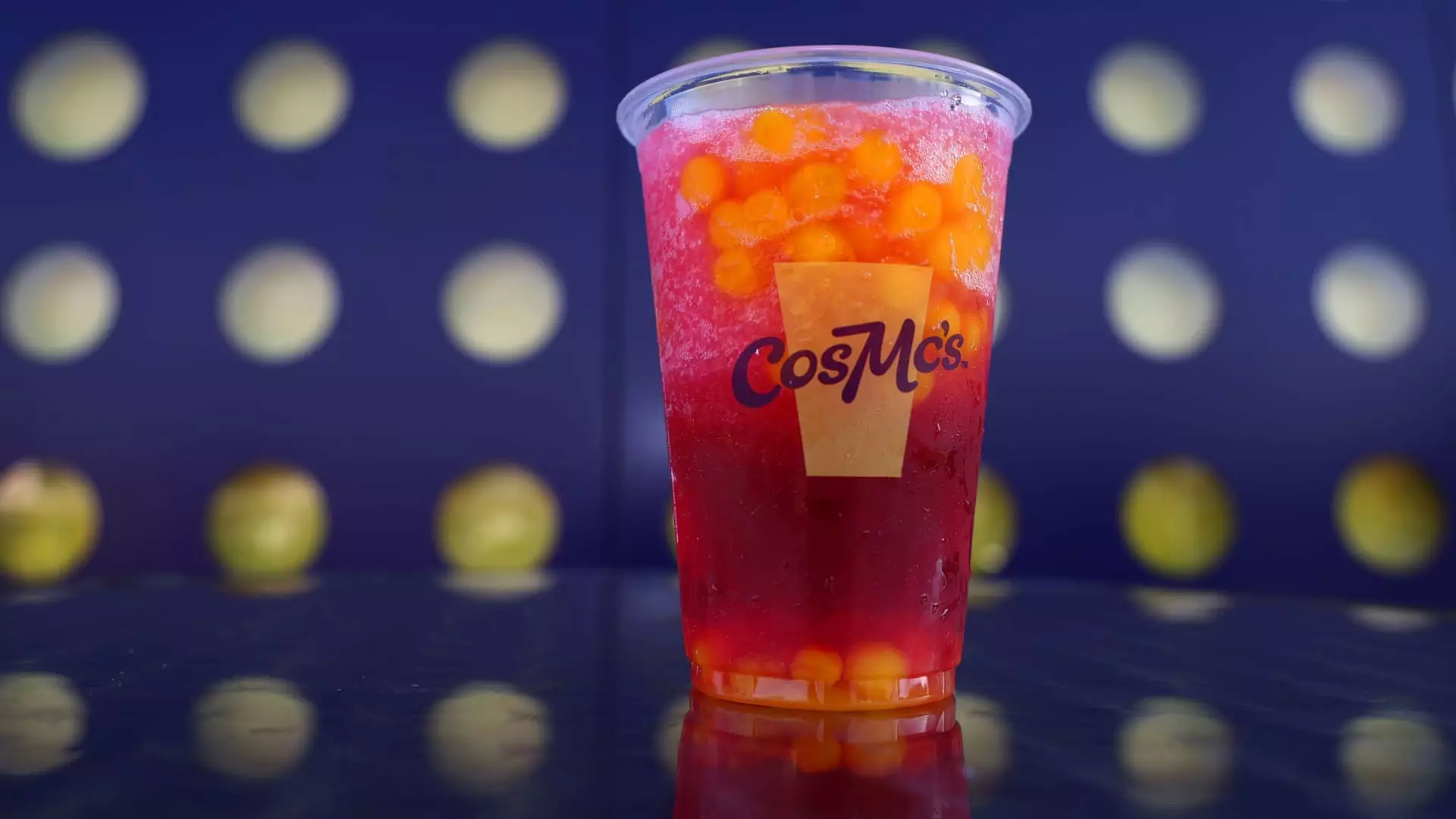Fast-food chains are taking a bold leap into beverage innovation, and the results are compelling. In a marketplace dominated by evolving consumer tastes, companies are desperate to capture the elusive Gen Z audience. This younger demographic, characterized by a desire for exploration and self-expression, is steering the ship in the fast-food industry towards new horizons. With brands such as Chick-fil-A crafting fantastical drinks like the Pineapple Dragonfruit and Taco Bell breaking traditional molds with their Live Mas Café concept, it becomes evident that beverages are no longer a mere accompaniment to meals; they have become the main attraction.
Focusing on what truly captivates Gen Z, fast-food chains are infusing their beverage offerings with colorful aesthetics and exotic flavors. This approach indicates a cultural shift, moving away from standard sodas to a more diversified selection that includes refreshing lemonades, specialty coffees, and even bubble teas. By embracing high caffeine and sugar options, these chains aim to broaden their profit margins, pushing beyond conventional food items that struggle to yield the same financial returns.
Drinks Beyond Expectations: The Rise of Uncommon Flavors
The drive towards unconventional flavors cannot be overstated. Fast-food chains are no longer restrained by traditional taste profiles; they are actively tapping into the diverse, multicultural backgrounds of Gen Z. Instead of visible resistance, we see chains like Wendy’s experimenting with gourmet flavor combinations, offering blueberry pomegranate and pineapple mango lemonades designed to spark interest and engagement. It’s not merely a sale; it’s a conversation starter designed for Instagram feeds and TikTok posts.
Moreover, the industry’s sweeping commitment to a broader palate space showcases a clear realization: younger consumers are excited by uniqueness and adventure. Flavor experimentation serves as a lucrative opportunity to distinguish themselves from competitors. For instance, Monin’s designation of yuzu as its flavor of the year for 2025 is more than just a trendy suggestion; it indicates a clear direction that large fast-food companies are taking in response to evolving consumer desires.
Fast-food brands recognize that uncompromising taste experiences can create a sense of exclusivity. This connects to Gen Z’s psychology, where generating a unique social media presence hinges on finding and sharing these delightful discrepancies that others aren’t aware of. As such, beverages act as both a vector for profit and a means for social currency.
The New Sweet Treat: Drinking Culture and Consumer Acceptance
In a world where calorie consciousness reigns supreme, a fascinating dichotomy emerges. Many Gen Z consumers are fully aware that much of what they consume in beverages is loaded with sugar, yet they are undeterred. The trend has become a cultural phenomenon fondly referred to as “little treat” culture—small indulgences that don’t break the bank but satisfy the craving for sweet escapism. As Claire Conaghan, a trendologist at Datassential, points out, purchasing an extravagant drink is perceived to be a reasonable splurge in the grand scheme of expenditure.
Here lies a central question: Why are these chains so heavily prioritizing beverages over food? The answer rests in simple economics. Beverages often have a longer shelf life, higher profit margins, and are easier to adjust on menus compared to elaborate food items, thus making them far less burdensome operationally. The trend suggests that these chains genuinely believe they can pivot towards a future where drinks become the focus rather than just a secondary choice.
Opportunities for Growth: The Corporate Perspective
For many fast-food executives, the opportunity for growth in beverage innovation is transparently lucrative. As fast-food giants like Wendy’s and Taco Bell strategize over their beverage-centric models, they recognize that the sector is not just about saturating the market with sugary drinks but evolving into a gateway for brand loyalty. Taco Bell’s ambition to create a $5 billion beverage business by 2030 underscores the robust potential these beverage innovations carry.
Executives are asking themselves how to build customer loyalty while increasing their bottom line. Taco Bell’s Live Mas Café, which integrates coffee, energy drinks, and even flavored sodas, functions as a vibrant hub of consumer interaction. It is an experiment that not only provides insight into market demand but actively engages consumers, fostering a relationship that could encourage repeat business.
The recent trends in fast-food beverage offerings symbolize much more than profit potential; they question societal norms around consumption and indulgence. With Gen Z leading the charge into unexplored flavor territories, fast-food chains are innovating at a pace that can simultaneously shape and respond to cultural movements. This evolution marks a significant moment not just in the dining industry but within the societal fabric that underscores consumer identity in an increasingly complex world. The world of fast food might never quite be the same again, as it adapts to fit the desires of a dynamic, adventurous generation craving moments of joy in a cup.

